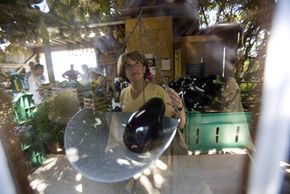The Beatles' John Lennon belonged to one. Madonna was rejected by one. So was former President Richard Nixon. What are they? Housing cooperatives, known as co-ops for short, are highly common in places like New York City, but few people understand how they operate.
With the surge in condominium ownership, many people have become familiar with how condo associations function. Co-ops share some of the same qualities: They contain multiple units of housing, are governed by bylaws and operated by elected officers and directors, and require occupants to share in the cost of maintenance and utilities in the form of monthly fees. But there are distinct differences, mostly pertaining to the nature of ownership.
Advertisement
When you acquire a home in a housing co-op, you don't actually buy real estate -- you buy shares in a corporation, whose only asset is the property. This corporation owns the home you live in; you own no greater part of it than any other member. You gain the right to occupy it through what's called a proprietary lease or occupancy agreement.
When you move, you sell your stock in the co-op. In some co-ops, you may have to sell it back to the corporation at the original purchase price, with all the stockholders sharing collectively in whatever profit is made when the shares (unit) are resold. In others, you get to keep the profits.
On the next page, find out what makes co-op ownership appealing to home buyers, and also why it can be hard to get into a co-op.
Advertisement


